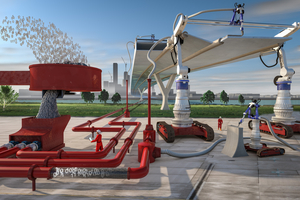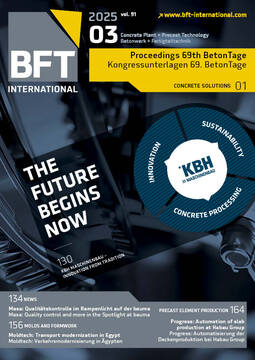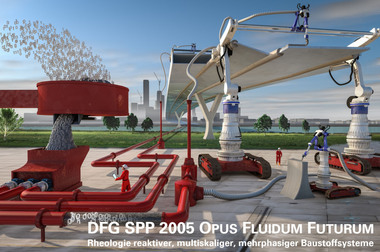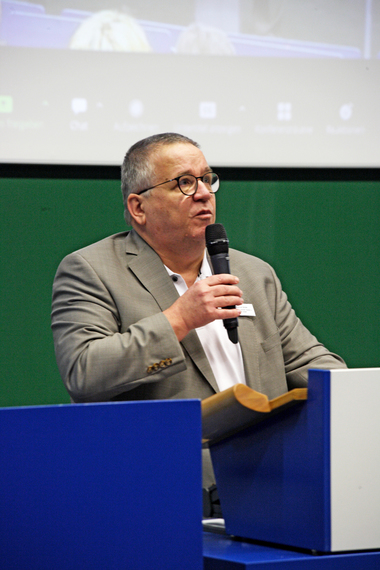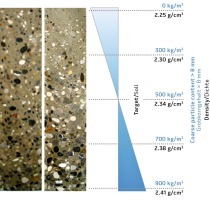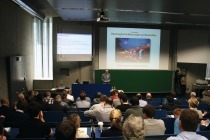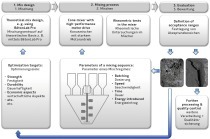Processing fresh concrete: Challenges and
solutions
Fresh concrete’s rheology is key to modern construction but remains understudied due to its complexity as a multiscale, multiphase system. Its behavior is influenced by hydration-driven chemical reactions, particle morphology changes, and intricate interactions within its multiphase structure. To address these complexities, the DFG Priority Program SPP 2005 is building a scientific foundation for rheology-based processes and sustainable construction technologies. The program focuses on three research modules:
1) Particle interactions: Investigates hydration effects, morphological changes, and superplasticizer impacts on flow properties.
2) Deformation behavior: Develops models linking micro-interactions to macroscopic flow, rheology-based mix designs, and fiber suspension behavior.
3) Transport and placement: Studies pumping, casting, and spraying processes, with a focus on flow-induced segregation and predictive modeling.
Collaboration is central to SPP 2005, involving over 50 researchers utilizing shared reference materials and advanced analytical methods to ensure comparability. The program has achieved significant scientific advancements, including the development of cutting-edge measurement techniques and rheological models that bridge micro-level particle behavior with macro-scale construction applications. These breakthroughs pave the way for innovative technologies such as 3D concrete printing and optimized material handling.
As SPP 2005 nears completion, the team aims to publish flagship papers exploring phase separation phenomena, refining predictive rheology-based models, and integrating in-situ measurement techniques to deepen understanding of the interplay between hydration and rheology. By addressing these challenges, the program contributes to revolutionary construction practices and sustainable development in the industry.

